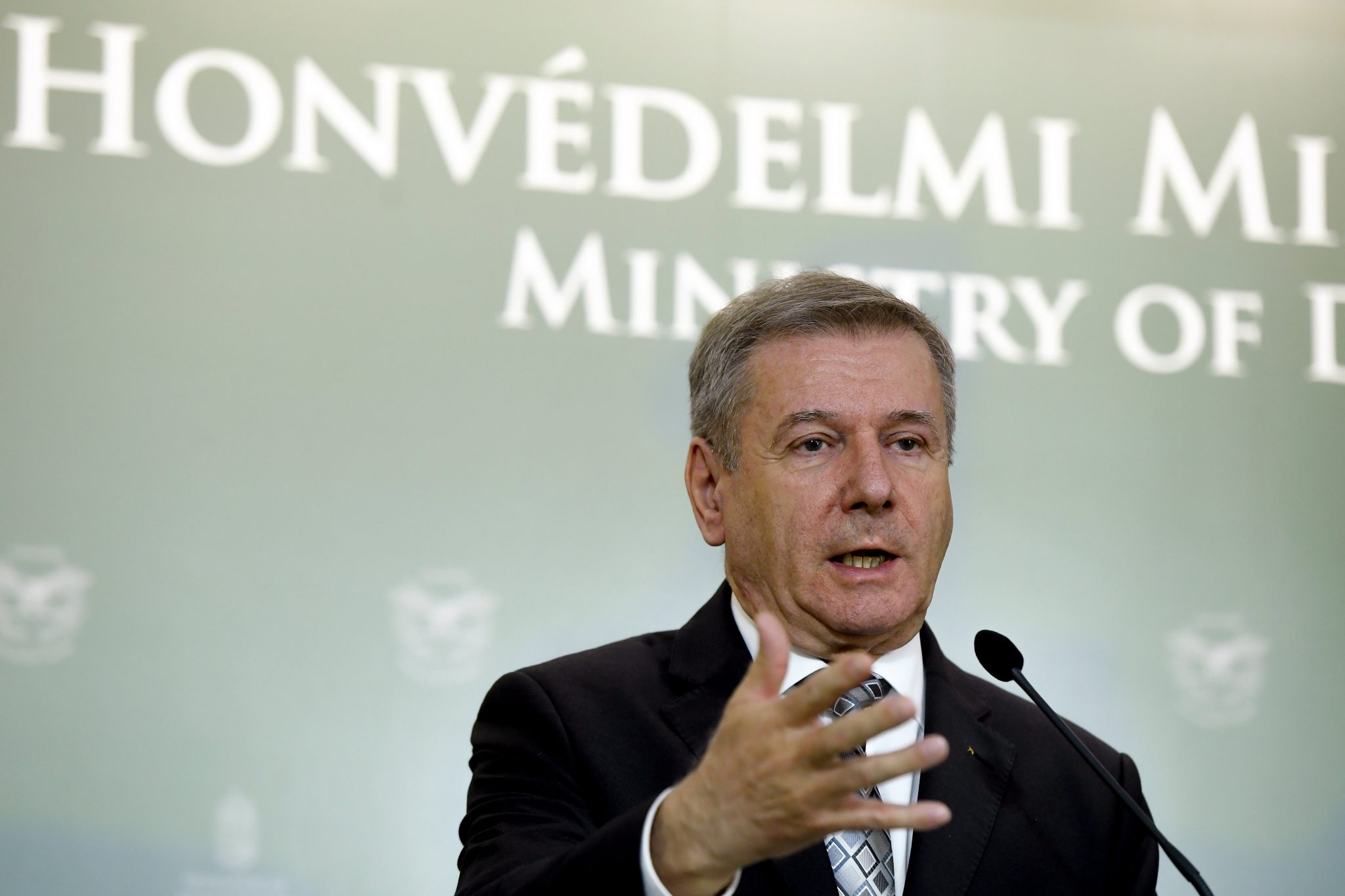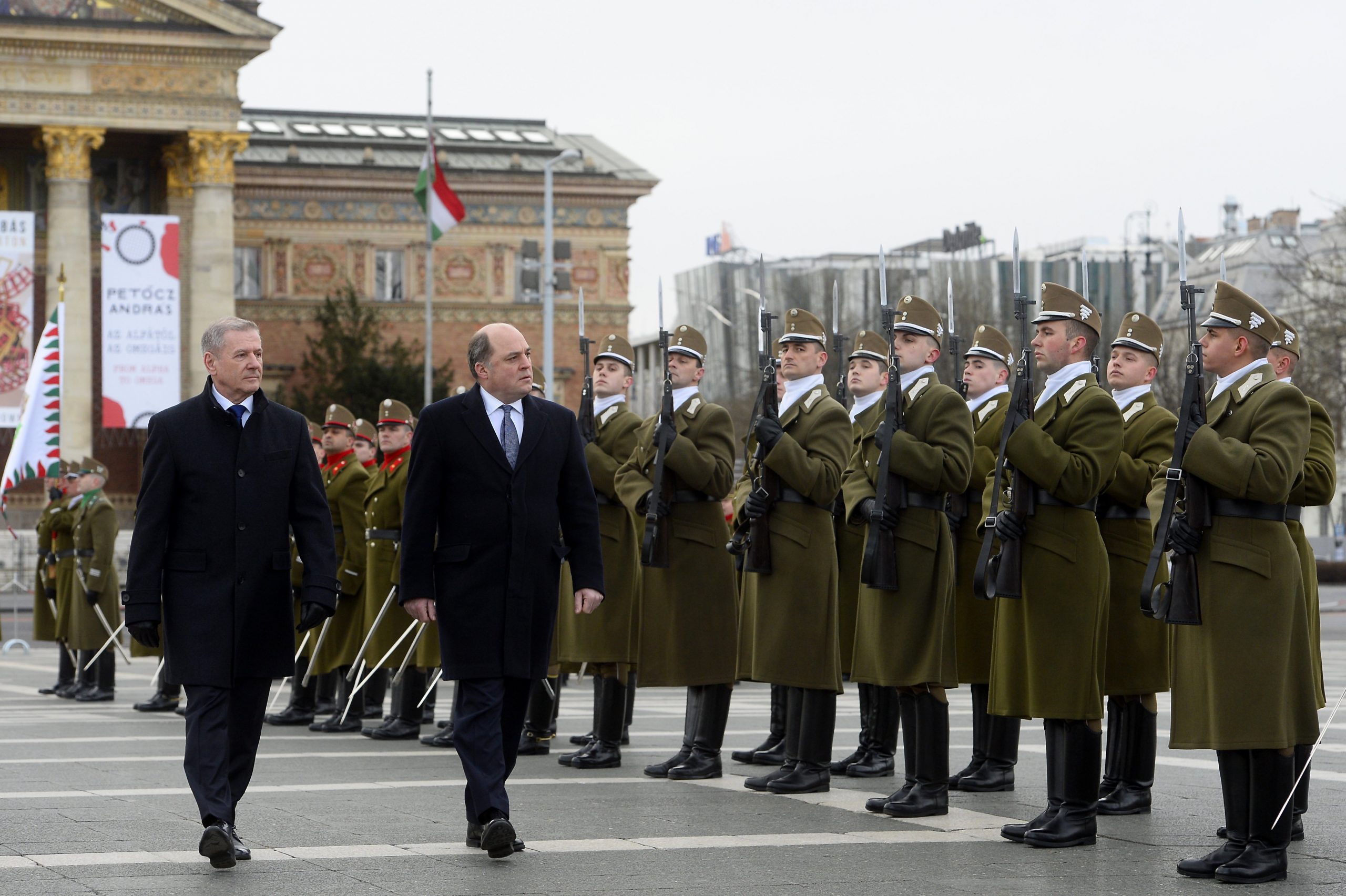
Concerning the presence of NATO Forces in Hungary, Tibor Benkő said that "contrary to press rumours", Hungary has not negotiated and does not intend to negotiate on the withdrawal of the Heavy Airlift Wing based at the Pápa Air BaseContinue reading

Hungary is committed to NATO, Defence Minister Tibor Benkő said after talks with his British counterpart, Ben Wallace, in Budapest on Monday.
Addressing a joint press conference, Benkő said Hungary’s armed forces was strong thanks to the country’s military development program.
He thanked Wallace for the United Kingdom’s flexible handling of evacuations from Afghanistan last August. Benkő also expressed thanks to his British counterpart for his praise of Hungary’s “excellent NATO capabilities”.
Benkő said he and Wallace agreed on their views of the security situation in Europe and the Ukraine-Russia conflict. He also emphasised the importance of security in the Western Balkans to Hungary.
He said it was important for Hungary to continue strengthening its military relations with the UK, noting a bilateral pact on joint military training signed in 2019.
The minister said there needed to be a follow-up meeting between him and Wallace, as there were “many issues” to discuss.
Wallace said central Europe was not just important to the United Kingdom, but also to NATO. If Russian aggression in Ukraine were to turn into an invasion, Hungary would also suffer because the conflict would lead to rising energy and food prices and migrant flows, he said.
Wallace said he and Benkő had discussed ways to de-escalate the Ukraine-Russia crisis, underlining that it was crucial to avert a worst-case scenario. The escalation of the conflict would be especially detrimental in the midst of the fight against the coronavirus pandemic, he added.
Wallace said the Hungarian military was strong and had excellent leadership.
Meanwhile, asked if it was a mistake for Prime Minister Viktor Orban to visit Moscow for talks with Russian President Vladimir Putin in the current situation, Benkő said it was “always the right time for talks”. NATO also puts dialogue first, rather than deterrence and armed conflict, he argued.
“So talks shouldn’t be rejected, but are in fact necessary,” the minister said, adding that it was “completely natural that a prime minister is responsible for the security of his country”.
Wallace said he did not believe it was ever a mistake to hold talks with Putin. Nobody wants prices to skyrocket or for migration waves to emerge, he argued, adding that Orbán’s visit was a good opportunity to convey messages to the Russian president.
In response to another question, Benkő said Hungary’s troops could handle any tasks that arise due to the Ukraine-Russia conflict, and there was no need for NATO to deploy troops from other countries in Hungary.
Asked to comment on the matter, Wallace said the UK had offered troops to NATO and not a specific country. It is up to the alliance to decide where it deploys the UK soldiers, he said.
Featured photo by Lajos Soós/MTI